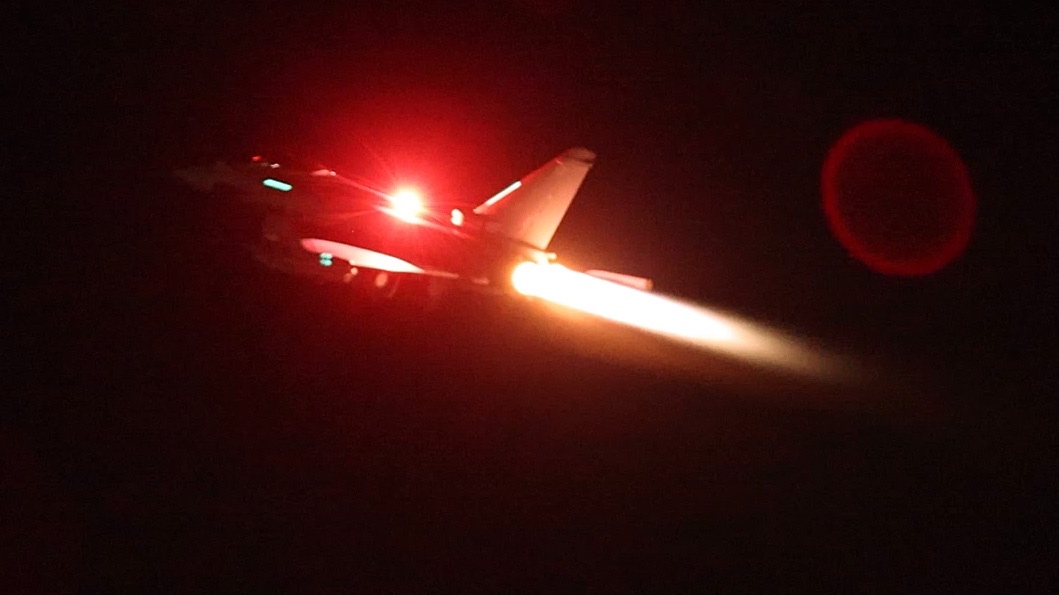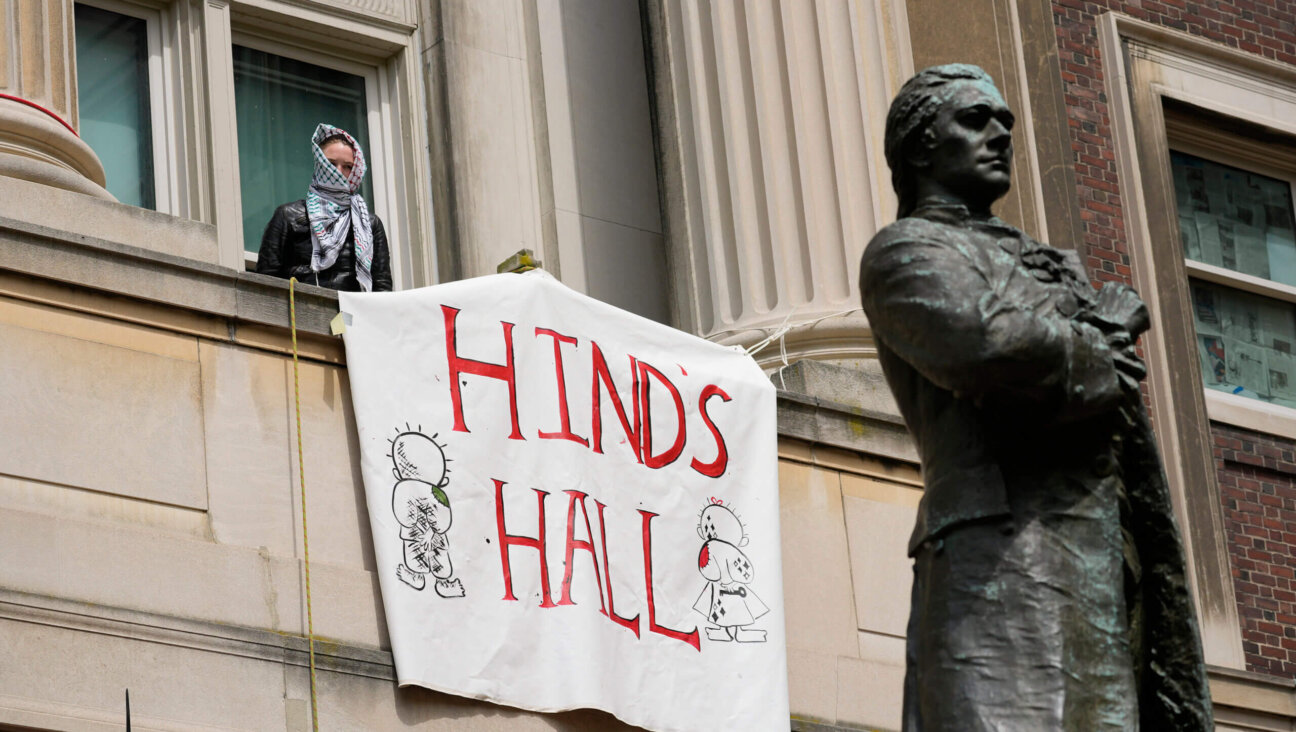US, British jets hit Houthi targets, drawing the West toward a combat role in Israel’s war

In this handout image provided by the UK Ministry of Defence, an RAF Typhoon aircraft takes off from RAF Akrotiri to join the U.S.-led coalition to conduct air strikes against Yemen’s Houthi rebels in Akrotiri, Cyprus, Jan. 11, 2024. ( MoD Crown Copyright via Getty Images)
WASHINGTON (JTA) — U.S. and British combat aircraft struck targets belonging to Yemen’s Houthi militia on Thursday, marking a rare and risky instance of U.S. and Western involvement in a conflict between Israel and an Arab adversary.
The Houthis, an Iran-backed militia, had been targeting Western sea vessels in the Red Sea, ostensibly to pressure Israel to cease fire in its war against Hamas in the Gaza Strip. Houthi officials said the strikes had killed five militants and wounded six.
Maj. Gen. Patrick Ryder, the lead Pentagon spokesman, told CNN on Friday morning that the attacks were aimed at keeping the Israel-Hamas war from widening.
“What we continue to see is that the conflict between Israel and Hamas does remain contained to Gaza,” he said. “A major focus for us is to deter that conflict from broadening into a a wider regional conflict. And so what you had in the Red Sea, what we’ve seen is the Houthis indiscriminately attacking commercial shipping and mariners transiting this vital waterway, and so over 50 countries have been affected by this. So this is an international problem that required international response.”
Thursday’s strikes, carried out by U.S. and British aircraft, had the logistical and diplomatic backing of an array of countries adversely affected by Houthi attacks on commercial vessels in the Red Sea.
A joint statement by Australia, Bahrain, Britain, Canada, Denmark, Germany, the Netherlands, New Zealand, South Korea and the United States warned that “malign actors would be held accountable should they continue to threaten lives, the global economy, and the free flow of commerce in the region’s critical waterways.”
The statement said the Houthis had carried out more than two dozen attacks on commercial vessels since mid-November, which it called “an international challenge.” It added: Today’s action demonstrated a shared commitment to freedom of navigation, international commerce, and defending the lives of mariners from illegal and unjustifiable attacks.”
Houthis aligned with Hamas
The Houthis since their establishment have been especially hostile to Israel, although Israel had nothing to do with the group’s conflict with the Saudis. They launched the raids on commercial vessels in November as a means of siding with Hamas in its war with Israel.
But the Houthis promised retaliation to Thursday’s strikes, with a Houthi spokesman saying the strikes would “not go unanswered or unpunished,” the Associated Press reported. That portends an escalation that could potentially draw the West into an Israeli-Arab war.
Such involvements have in the past had longstanding diplomatic and military repercussions. After Israel launched a war in Lebanon in 1982, a U.S.-led bid keep the peace there saw a massive Hezbollah attack on U.S. and French forces in 1983 and a withdrawal in 1984 that, according to a CIA document from 1985, preceded growing sympathy for Hezbollah among Lebanese Shiites.
The 1956 Suez War, launched against Egypt by an Israeli-British-French alliance, led to the United Kingdom and France losing influence in the Middle East, coupled with the rise of Soviet influence in the region.
Not yet clear is how the Houthis’ backers in Iran would react to Thursday’s strikes. Saudi Arabia has for years sought to unseat the Houthis after the group seized control of parts of the country from a Saudi-backed government nearly a decade ago. The Saudis, the Houthis and the Iranians are now seeking to end that conflict and are abiding by a temporary ceasefire.
President Joe Biden has robustly backed Israel in its war, although in recent weeks he has pressured the country into drawing down forces in Gaza and increasing the entry of humanitarian assistance into the strip, which world bodies have said is verging on starvation.
The Biden administration has also sought to deter Israel and Hezbollah from expanding their conflict in Lebanon. Hezbollah, which like the Houthis and Hamas is backed by Iran, and allied militias started striking targets in northern Israel at the start of the war.
This article originally appeared on JTA.org.

I hope you appreciated this article. Before you go, I’d like to ask you to please support the Forward’s award-winning journalism this Passover.
In this age of misinformation, our work is needed like never before. We report on the news that matters most to American Jews, driven by truth, not ideology.
At a time when newsrooms are closing or cutting back, the Forward has removed its paywall. That means for the first time in our 126-year history, Forward journalism is free to everyone, everywhere. With an ongoing war, rising antisemitism, and a flood of disinformation that may affect the upcoming election, we believe that free and open access to Jewish journalism is imperative.
Readers like you make it all possible. Today is the last day of our Passover Pledge Drive and we still need you to step up and make a gift to sustain our trustworthy, independent journalism.
Make a gift of any size and become a Forward member today. You’ll support our mission to tell the American Jewish story fully and fairly.
— Rachel Fishman Feddersen, Publisher and CEO
Join our mission to tell the Jewish story fully and fairly.
Today is the last day to contribute.























